Interview: Charm City Art Space – 7 Years and the 1000th Show (w/ Mike Riley)
Audio clip: Adobe Flash Player (version 9 or above) is required to play this audio clip. Download the latest version here. You also need to have JavaScript enabled in your browser.
MP3: Sick Sick Birds – Your Machine from Heavy Manners 12″ (2009)
On a particularly idyllic and cool fall evening this week, I sat on the steps of Charm City Art Space with founding member Mike Riley (the Spark, Pulling Teeth, Toxic Pop & Firestarter Records) to reminisce and reflect on the past, present and future of the iconic, long-running DIY venue.
They celebrate a mind-boggling 1000 shows this Friday with a secret, 5-band line-up. It should not be missed.
Doors at 7PM. All ages and donations appreciated, as always.
Aural States: To start, can you flesh out the circumstances leading up to the genesis of CCAS? What factors contributed to you and the other founders’ desire to start up the space?
Mike Riley: Well since I moved to Baltimore in ’94, I went to UMBC. I grew up in central New Jersey and there were shows left and right, bands I wanted to go see all the time. When I came down here I didn’t have a car. This was obviously not pre-internet, but pre the explosion of the internet. My AOL search for Baltimore hardcore was this band called Compression, who are far from a hardcore band.
There were hardcore bands in Baltimore, just bands weren’t on the internet yet. So I was lost as to where the shows were happening in the area, I couldn’t find any info on the Loft, or anything in the area. So I decided I’d bring the bands in myself. I started doing shows at UMBC in ’97. Did them there for a while. Then a friend told me about a space near University of Maryland, which was at the time the Supreme Imperial. I got involved with them, they let us rent out the space. Eventually when they got evicted we took it over. That became the Chop Shop. At that time, I met my friend Mike Wolf who had just moved to the area from Pittsburgh. Well, not just, he had been here a little while. He was involved in a space in Sowebo called Black Aggies, which was also the Laff n Spit. So we just became friends, kept in touch over the years.
Fast forward to 2002, and neither of us have regular show spaces to work with. DIY spaces. I was doing a lot of shows at the old Ottobar and the Sidebar. But we just wanted a non-bar venue where music was the focus. Mike and I met up at a show at the Bloodshed, a warehouse space on Preston. They had just moved in there, it was a cool, great space but I guess since people were living there, they didn’t want to do more than one show a month. Mike and I were talking that night and we decided we really needed to get a space together, that’s smaller and can help out smaller touring bands. So Mike found this place for rent in the City Paper Classifieds. We came and checked it out, and downstairs it was all walled off into little, separate rooms. Upstairs was a wig shop that had just closed down.
We thought, this’ll work. It was cheap. We tore down all the walls and that was our basement space. To come up with first month’s rent we got in touch with everyone in the Baltimore and DC area that we knew who might be interested in a space like this: “We’re trying to raise money for security deposit, rent. Help us out.”
We got over $1000 in donations, anywhere from $20 to $150. And it’s never had to come out of pocket since.
AS: One thing you said that struck me as really interesting, and relevant: you said you wanted to start a space focusing on the music, without alcohol. Alcohol is a thorny issue for any venue, especially with liquor licenses getting scarcer and scarcer. Could you expand a little on your motivations for the space, and divorcing the music from what many see as an inextricably linked social aspect, drinking.
MR: Right. I’ve worked at the Ottobar and stuff. A venue like that, in a space that big. Whatever they’re paying in taxes, fees…those costs add up. I know a venue like that could never survive without that alcohol revenue.
AS: Yeah, I definitely see in the case of legitimate venues with higher overhead how that could be an issue. But in a DIY space…what’s your take?
MR: I can tell you in every DIY space I’ve been involved in, though we try not to focus on any one genre, by default it’s mostly punk and hardcore. So it’s younger audience. The first thing that’s gonna get you in trouble is having young, drunk kids out and about. Causing trouble, disrespecting the neighbors, whatever. Obviously those things will attract the attention of the cops.
So that was our motivation behind the alcohol-free policy. 9 times out of 10, that’s the first thing that will get a place like this shut down. Cops come and see a bunch of underage kids trashed and it’s vague who’s in charge. We primarily want to keep it all ages. It’s ridiculous to shut out kids under the age of 21 from the kind of music we’re doing and the kind of community work we’re building and focusing on.
But really, our primary reason is survival. Don’t take chances that are unnecessary.
AS: Can you say a little more about your all-ages stance and your mission statement?
MR: As far as the all-ages part…growing up, being under 18 or under 21 and really wanting to see bands that were playing a venue that was age-restricted. I got really bummed out, and completely frustrated. Personal frustration from having to deal with that. Music, no matter what kind of music you’re into, is not restricted by age. I’m 33 and I listen to music that some people say they stopped caring about when they were 15. I know 12 year olds who are into jazz and classical.
The other parts of the mission statement, the people who were involved here to help get the space started…the other DIY spaces we were involved with kind of focused on music, and that was it. No matter what other ideas they had. Everything fell by the wayside to concentrate on music. We’ve really always tried hard to encompass the ‘zine library, and the gallery. Have more than one thing going on. We’ve always offered it out as a venue for community-oriented meetings or whatever. Not may people take us up on it, but it is there. To be more of a community space than just a music space.
AS: As a community space, how does the organization function? Commune, collective?
MR: I guess it depends. Certain people define collective differently. Our decisions are made more on consensus basis, rather than strictly democratic or collective. I feel like other collectives I’ve been involved with that don’t delegate responsibilities, try to keep it too…
AS: Horizontal power structure?
MR: Exactly. And decisions never get made because not everyone’s gonna agree. We’ve been involved in enough collectives to know that if 20 people are into something and 5 people aren’t, you’ll never get anywhere if you try to convince those 5 people the other 20 are right. So things are done more on consensus basis.
AS: Have you had a fairly stable group of people running the space?
MR: I’m a founding member and have been involved ever since. Mike Wolf, he’s since had two kids. Most of our discussion occurs on our email list-serv, so Mike’s still pretty involved there. He just doesn’t get to come out as often. Dan Bress, who plays bass in Dead Mechanical. He’s an original member; he’s still involved booking shows and his band playing here. John Bachman he’s pretty early on. Rob Sullivan who sings for Ruiner.
Those people are within the first year, and are still involved. We’ve definitely had high turnover. We get a lot of MICA people involved because we’re so close to the school. Obviously, once they graduate or get a little more involved in school, they might not be able to participate as much. I’d say most people that volunteer, become members, stick it out and stay active 3 or 4 years on average.
A lot of our members get into booking and music at the Space…punk, hardcore, indie rock, whatever. Then they sort of expand their taste and you see that at the Hexagon, Sonar, Ottobar.
AS: Kind of like Art Space alumni…
MR: Exactly. Tamara Gabai, an old member of the Space, is running a vegan bakery (Brunie’s Bakery) now. She’s gonna bake a cake for the 1000th show. You might consider Nolen Strals an Art Space alumni…he was very involved and did a lot of show fliers for us which has turned really successful. Things he was involved in at our space might have helped fine-tune things he was already doing with Post Typography.
AS: Would you say most of the group is pulled from MICA?
MR: It expands all the time. Primarily college kids. It’s people coming to Baltimore, Towson, Catonsville from distant rural PA or Maryland. They discover independent music is easier to seek out. Through the website or fliers they find that bands they want to see are coming here. Membership growth happens in spurts though.
There’s a community center in Pikesville that a lot of kids from that area played with their bands. For whatever reason, either they don’t have licenses or their parents don’t want them in the city alone. But they end up here once they get older. Some of them got involved, word of mouth spread, and a few years ago we ended up with a growth spurt of kids from Reisterstown and Pikesville.
I don’t think there’s one specific area though. Mostly college kids, area high school kids just moving into the city who are moving out of their parents’ house.
AS: Do you have a direct connection with scenes outside the city, like Celebrated Summer and Ten Car Pile Up in Towson?
MR: Well I’ve been friends with Tony since he worked at Reptilian. We have similar music interests so we’ve been tight ever since. His bands have always played here. Promotionally, we definitely help each other out. I like to think that maybe kids that are into music, goto school in Towson or areas where they might not have heard of the Art Space, they go into Celebrated Summer, see a flier and come down to get involved. At Ten Car Pile Up there’s Rob Sullivan, who’s been a member here for years, and books a lot of the shows there. Ten Car already had an established, Towson-area younger crowd who might not be able to come to the city. Once we got started up, and some of those kids started to hear about us, we eventually saw some of them start to come down.
AS: With the group and scene around it changing and evolving, have you felt the initial goals and your vision of the space changed significantly?
MR: Well, when we signed the lease in June, we thought “If we can make it through the end of the summer, we’ll be happy.” The fact that we’ve made it over 7 years has blown a lot of our minds. The fact that we’ve been so lucky about people in the neighborhood being supportive and cool, not calling the cops if there’s a problem and coming to us if there’s an issue. Cops drive by, and we’re not in a bad neighborhood by any means, but we’re not too far from one. Our theory is that the cops have better things to deal with than some kids playing music in a basement.
And knock on wood, things stayed OK. When we started, it was Mike and my social circle. Those were the people we went to. It was fairly tight knit, the musical styles were not too far-ranging. Just being here, with more and more people getting involved and telling their friends, it’s evolved so there are more people booking who are into more types of music. Definitely a goal. We never wanted it to be just a punk and hardcore venue. So that’s really exciting.
As far as the scene stuff goes, I like to think that between bands meeting each other here, becoming members and friends, that we’ve spawned new bands. And then both bands go off and do things. That’s another primary goal of mine. It’s a place where people who might not be able to interact with each other at a more typical rock club can come and meet people. They can work on music or art projects together to make new things that would’ve never happened otherwise. Not anything against the Talking Head or Ottobar…but a lot of it has to do with the way we’re set up here. Music in the basement, and a lounge and gallery area upstairs. People aren’t going to the bar in-between bands and just hanging out with their friends.
AS: And the space is different too. It definitely feels homey…
MR: Yeah, like a basement.
AS: It’s like when you get in an elevator. The social expectations for that situation are very different than in the lobby.
MR: Right. And when you’re this tight-knit, I think you’re bound to meet and talk to people you might never have met or talked to before.
AS: It seems like you can operate as an island, independent of any other scenes going on. That was part of the reason for creating the space, to create an island in the sea of sorts. Baltimore’s always been very fertile and underground, but now there’s a lot more mainstream attention, blowing up happening, because it seems a broader base is ready for what a lot of people are making. How has this growth in the city affected you guys, if it has?
MR: I don’t know that it has so much. Where I feel like most of the stuff that has gotten national attention and blown up, Wham City stuff say. They already had their venues that were the sort of scene centers. Bands like Pulling Teeth, Ruiner, Sick Fix, Dead Mechanical, Animal Poison. This is the scene center for these bands. If one of them were to blow up, we’d feel it a lot more. But none of them really has. We’ve had some of those (Wham City) bands or affiliated artists play here. But really, neither positive nor negative influence.
AS: Landmark shows throughout the history of CCAS. Are there any major ones you can point to? You said before that you’ve never really had anyone from the scene blow up, but that’s not entirely true.
MR: Oh certainly. It’s funny things like that, a hardcore band called Modern Life Is War. I did a show for them on their first tour, they had a 7″ out and there were maybe 10 people. Then they played here 2 years ago and you couldn’t possibly fit everyone in here. That’s always fun, bands like the Thermals. Glass Candy who got pretty big in the dance-rock scene. I can’t remember if they hopped on an existing show or if it was a short notice show. It was interesting because you’d see people who you would never see here beforehand. And it was great, everyone had a blast as far as I know. I wasn’t familiar with them at the time. That was sort of a show where, that kind of band isn’t necessarily always associated with the Art Space…but people came out and it was amazing.
Not too long ago a band called Polar Bear Club played here. Now, they’re doing a huge tour with like the Gaslight Anthem and they’re like a melodic hardcore band. Bands like that are cool because almost every member of that band played in older bands here to anywhere from 20 to 100 people. That’s really cool to me to see the evolution. And they’re from Rochester Syracuse, they’re an upstate New York band. So it’s not even a local thing. You just get to see the evolution of these peoples’ music through the Art Space. I really enjoy seeing that.
Then there’s bands that have come up through here, and maybe the Art Space can be a little too small for them now. Double Dagger, Ruiner, Pulling Teeth. The Art Space was a part of their history, and they haven’t really moved on, but they’ve outgrown those shoes.
AS: What about on the community side of things? Were there any periods of major growth or was it always kind of gradual?
MR: I’d say it was fairly gradual. I guess Nolen would’ve been the first person associated with MICA who came over here. . This was our first year. We’ve never done a ton of advertising because we’ve always been afraid of being shut down, so we’ve been kind of a word-of-mouth, fliers in selected places type of promotion. Nolen was hanging show and membership fliers around campus, and that definitely led to a huge stream of people from MICA coming in and getting involved.
The fact that we wanted to have it be more than a music venue. Have gallery stuff going. Nolen was our first sort of curator, but having that separate group of people that were somehow connected or had interest in local music. But their primary focus was visual arts. That’s sort of helped out as well, having people that are into music but more interested in the other aspects of the space.
AS: What about prickly, on the precipice moments?
MR: Yeah, definitely when the Bloodshed got shut down. We got really paranoid. There was a lot of interaction between our spaces where we would sort of do fests where the afternoon would be here, night time there. Things like that. So when they got shut down there definitely was a ring of paranoia about the space. We sort of went even more low-profile for a while. We might have gone as far as taking the website down. But nobody ever bothered us.
AS: So for the most part, you’ve been entanglement free…
MR: Yeah, the very first thing we did when we moved in, we talked to the old neighbors and let him know what we were doing. Ralph, who used to live upstairs, said “That’s cool, but during the week I have to get up at 4AM for my job, so if you can cut the music by 10PM that’d be great.” And we’ve kept that 10PM curfew ever since. So we’ve always tried not to be like “We’re here, we’re doing this. Fuck everyone else.” We knew better.
AS: I gather that you never really thought about a 1000th show at the beginning. For you personally, and for the space, how is the show significant?
MR: For us as a space, we kind of got going modeling ourselves after ABC No Rio in New York, Mr Roboto Project in Pittsburgh. Gilman to an extent…obviously they’re on a much larger scale. Mike was good friends with a lot of the people who got Mr Roboto going. They were a ton of help to us when we were getting started. Other than those spaces, I couldn’t name another volunteer-run, DIY arts and music space in the US that’s lasted this long. We’re certainly proud of that and feel lucky we’ve been able to do it for so long.
And personally, the fact that I’ve seen people come and go and get burned out but I haven’t gotten burned out. The first few years, I had the mentality that if I didn’t book 5 or 6 shows a month, we were never gonna get by. And I sort of burned myself out on booking, and lost a lot of my own money doing things that way. I realized that I needed to take a step back from being a primary booker. I still do shows from time to time, but now I’m more comfortable being involved in the behind the scenes stuff.

AS: Can you give any details on the show?
MR: The line-up’s a secret, only 2 space members know the line-up. Even the bands that are playing don’t know the other bands. My one wish is that instead of wanting the 1000th show celebration BE the actual 1000th show, we would’ve done a celebration of 1000 shows and not have the date be so specific. Shows get booked as short as 2 weeks notice, so we’ve been kind of waiting to see when the actual show will be. That left us with only 2 weeks to get bands together. A lot of bands that would’ve been amazing had to say no because they didn’t have enough time to get practices together, or they already had commitments…
For the 2000th show celebration, it’ll be more of a celebration of 2000 shows, not the ACTUAL 2000th show. So we have some more time to get cool stuff. The line-up this time is still great.
When we move into the new space, we wanna have a weekend celebration. I’m hoping we can get a lot of those bands that were interested and would’ve been like holy shit in the basement deals. And that’ll be announced. But we just thought that this would be a fun thing to do. And it’s not so much about the show, it’s about the space. So just come out, have fun and watch some cool bands. As far as genre-wise goes, it’s pretty eclectic.
AS: All local?
MR: If you count DC. And this is memberwise, not necessarily bandwise.
AS: Having any anxiety about capacity for the show?
MR: Actually I don’t really know what to expect. People might think “Oh it’s a secret, I don’t want to take my chances. I’ll just goto the bar.” But I hope people come out to celebrate the fact that we’ve been here for 7 years and 1000 shows. When you get here, the lineup will be posted. Hopefully that’ll get people talking to their friends about it. Or they’ll get here and think “I was expecting something bigger.” That’s the thing with the secret show. People keep hyping it and rumors. It’s kind of funny.
We try to keep track and click for every show and I think 155 came for Andrew Jackson Jihad and Delay. Andrew Jackson Jihad are kind of acoustic, so on that kind of thing we can open the front door. And people for that show were everywhere, in every room and on every step.
AS: So is this going to be the last show before the move?
MR: We’re still trying to figure out from the landlord when we can move in. It’s this garage next door.
AS: The move is by choice then?
MR: Yes, completely by choice. When we first moved in here, the guys in the garage did installations for sound systems in vehicles. The first few years they were around a lot, but then we started seeing them less and less and less. A couple years ago, I asked the landlord what’s up with the garage next door? We’re looking to expand to a bigger space. He said the guy’s still paying rent and using it for storage. I just happened to ask him about it again like 6 months ago. He said the guy hasn’t been paying rent, and he’s looking to clear and rent it out. He let us in there and basically right now it’s jam-packed full of vehicles, garage junk.
The landlord got ahold of the guy and said he has until the end of November to clear his stuff out. The guy basically said if he doesn’t get to it, to clear it ourselves. So hopefully we can get in there and work on it, clean it out for a month before we start paying rent. It needs a lot of work. We wouldn’t be able to just stop here at the end of November and get started there at the beginning of December. We’d have to keep the current space at the same time, but there’s no way we could pay rent for both.
AS: But CCAS won’t be expanding to have two spaces?
MR: No…some people thought about it for a while. The one concern is we wouldn’t be able to help out as many small bands as we do now. We still do lots of small shows for like 10 or 20 people, and the current space would be good for that. We’re working on ways to still do this and keep it financially feasible. We’d like to keep the ‘zine library and gallery section going. Since the new room will just be one straight room, we’re also still trying to figure out a way to keep them safe.
AS: How big is the new space?
MR: I describe it as roughly the size of the Sidebar. Probably from the bathrooms to the front. It’s nice and long. A lot of our promoters do as much as they can here, but stuff that’s too big occasionally has to go to the Talking Head or Sonar. To be able to keep all that stuff here would be amazing. The rent in that room is double what we pay now though, so we’re going to have to come up with more benefit shows and develping things like a new structure for taking money from the door.
AS: Is the capacity double?
MR: It’s more than double. 50 is like comfortable, 75 jam-packed, and we’ve done shows of 100+ in the basement. Shows of 200+ are doable and comfortable in the new space. The other thing we could never do here is go legit as a venue. We don’t have any rear exits, things like that. Whereas this new space we are pretty sure we can go 100% legit. How we go about doing that, we’re not really sure. I know Hexagon did something where they registered as a record store to enable them to have live music.
AS: What are the other benefits of going legit at this point?
MR: Not having to be paranoid all the time if we’re gonna get shut down in the middle of a lease. We’d probably incorporate…it’s never happened before but if someone were to get hurt, me being the lessee wouldn’t be screwed over. Be a little bit more visible. And possibly, since we’re in Station North, getting grant money. So that’s the eventual goal.
AS: Is that the biggest future goal right now? What else are you shooting for short-term and long-term?
MR: Yeah, going legit. For now, saving as much money as we can. We’re probably gonna work out one or two more benefit shows before we move in to help pad our pockets before our expenses double. Then just getting in there and fixing it up.
I think with a space that isn’t a cramped basement, that will open us up to more people. Take a band like Sick Sick Birds. They don’t play around a lot locally. Their draw tends to be friends, an older crowd and maybe not one that is super cool being in a cramped basement with sweaty teenagers. To be able to appeal to more people because it’s a more comfortable space.
We tried to do film and movie screenings before, but the current space isn’t really ideal for that. To be able to try and do more things like that, maybe something like what MicroCineFest did. It would be really great to supply a venue for something like that.
I like the fact that us and the Hexagon, the Metro Gallery, the Talking Head or the Ottobar. We all help each other out whenever we can. I’d like to continue to foster that. I’m in a band that goes on tour a lot. I see and hear about venues shutting down other venues because they don’t want the competition. I think it’s amazing that in Baltimore, you don’t ever hear of that at all.
AS: Where do you see your involvement with the space going? Do you ever see yourself leaving CCAS to concentrate on other things like your labels,Toxic Pop and Firestarter?
MR: That’s definitely a question I find I’m asking myself a lot lately. Not just about the Art Space but music in general.
I’d say when I first got involved in all of this in the early to mid 90s, you rarely saw people that were involved beyond the age of 35, 40 even less. These days, for whatever reason, it’s far more common. I’ll probably not be doing loud, fast aggressive bands past another 3 to 5 years. With music, when you hear it you can tell whether the band’s goals are more financial than creative. I’ve always been into bands that are more into the creative side. So I’ll probably do labels for as long as I can afford it and have the time for it.
Over the years, I’ve seen myself become less involved in booking and promoting of shows, but as long as the Art Space is around and I’m in Baltimore…I’ll be involved behind the scenes. I think one of the biggest assets I can provide is my experience. The fact that I’ve been involved in DIY spaces for so long, I’ve seen the things that help and hurt…whether it’s venues, bands, whatever. And I can impart my wisdom on people.
I’m just super stoked we’ve been able to do this for so long, and I’d love to see it continue. And maybe do it on a slightly bigger level, where we can provide a bit more.
Related posts
- Mark Olson (ex-Jayhawks) Interview / Show ReviewWelcome our newest contributor Lou Takacs out of good ol’...
- Whartscape & Wham City Interview (w/ Adam Endres)Wham City has unquestionably changed the landscape of Baltimore music...
- Baltimore’s best show all year (according to a guy you don’t know but should trust)[Audio clip: view full post to listen] MP3: Vivian Girls...
- Contest: Morrissey’s Years of Refusal Giveaway[Audio clip: view full post to listen] MP3: The Smiths...
- Countdown to Whartscape 2009: T-4 Height | Human Host (Mike Apichella)[Audio clip: view full post to listen] MP3: Height With...



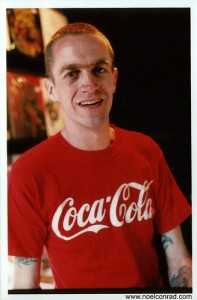


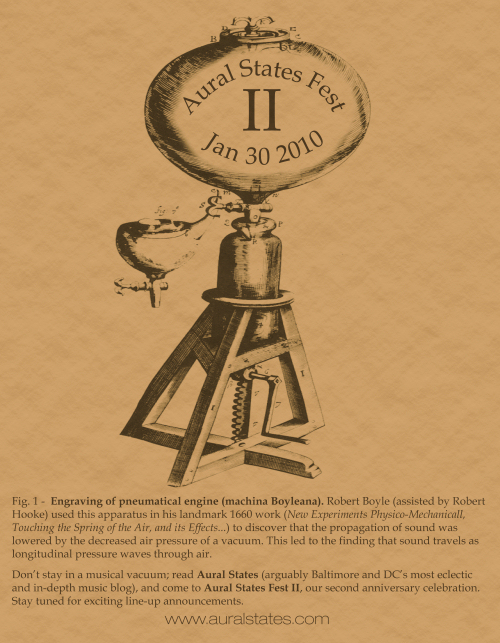
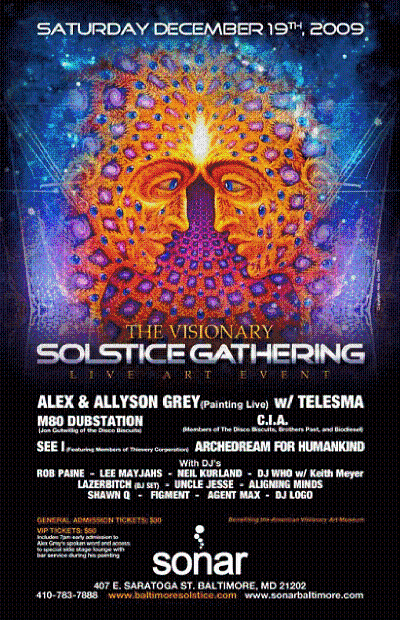









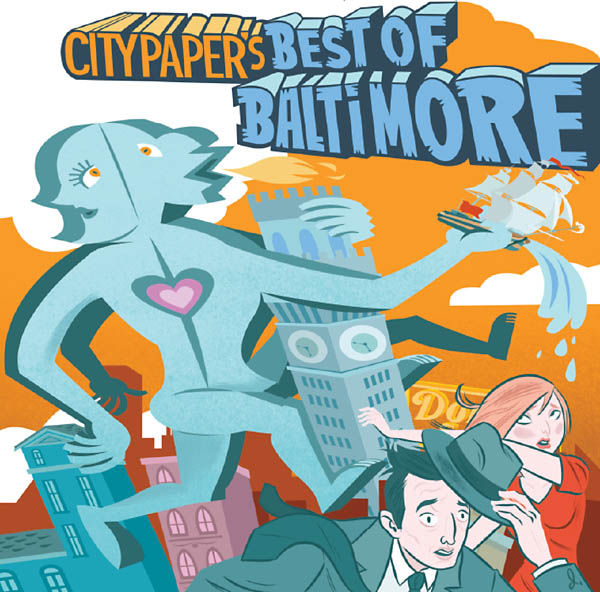
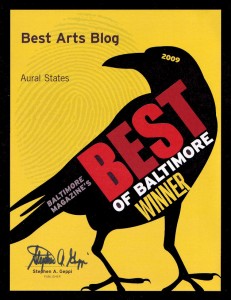


 Double Dagger: Masks EP
Double Dagger: Masks EP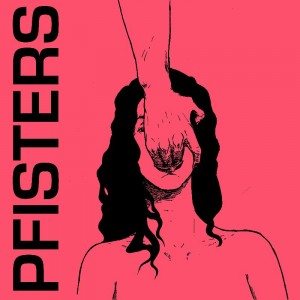 Pfisters: Narcicity
Pfisters: Narcicity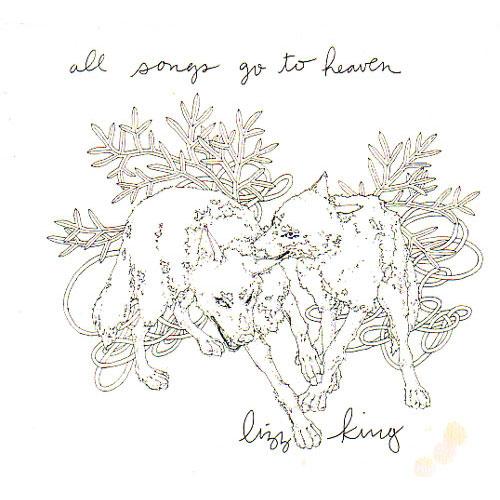 Lizz King: All Songs Go To Heaven
Lizz King: All Songs Go To Heaven Imperial China: Phosphenes
Imperial China: Phosphenes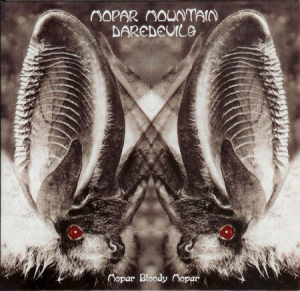 Mopar Mountain Daredevils: Mopar Bloody Mopar
Mopar Mountain Daredevils: Mopar Bloody Mopar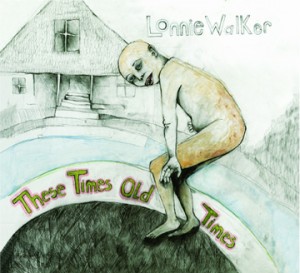 Lonnie Walker: These Times, Old Times
Lonnie Walker: These Times, Old Times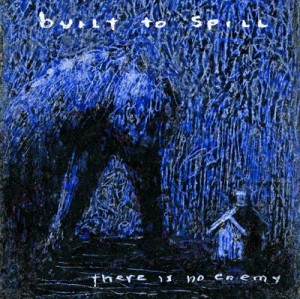 Built to Spill: There Is No Enemy
Built to Spill: There Is No Enemy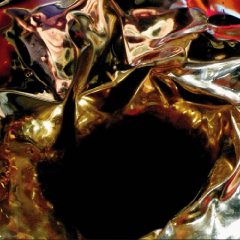 Hypnotic Brass Ensemble: Hypnotic Brass Ensemble
Hypnotic Brass Ensemble: Hypnotic Brass Ensemble Secret Mountains: Kaddish EP
Secret Mountains: Kaddish EP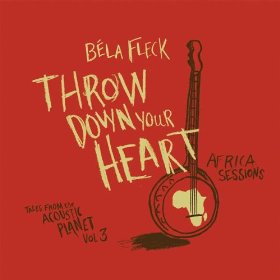 Bela Fleck: Throw Down Your Heart: Tales From the Acoustic Planet, Vol. 3 -Africa Sessions
Bela Fleck: Throw Down Your Heart: Tales From the Acoustic Planet, Vol. 3 -Africa Sessions Lands & Peoples: Lands & Peoples EP
Lands & Peoples: Lands & Peoples EP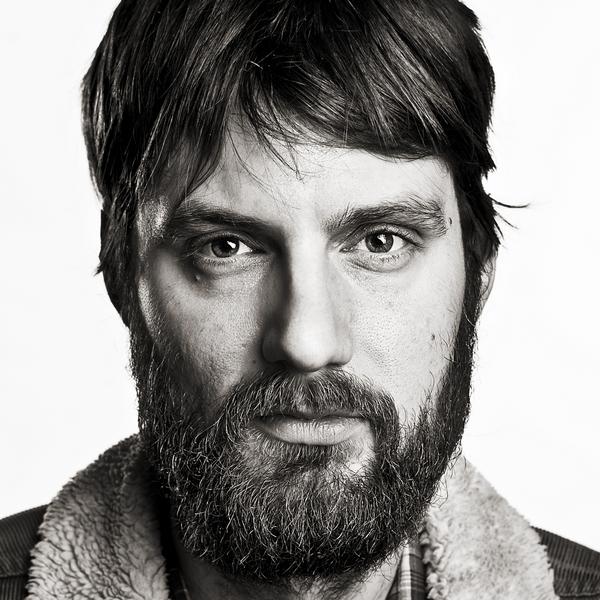 Caleb Stine: Eyes So Strong and Clean
Caleb Stine: Eyes So Strong and Clean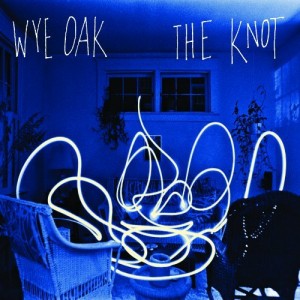 Wye Oak: The Knot
Wye Oak: The Knot Pontiak: Maker
Pontiak: Maker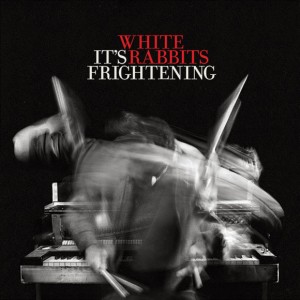 White Rabbits: It's Frightening
White Rabbits: It's Frightening Dirty Projectors: Bitte Orca
Dirty Projectors: Bitte Orca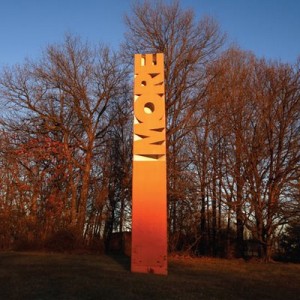 Double Dagger: More
Double Dagger: More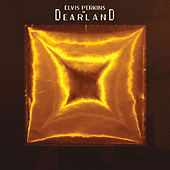 Elvis Perkins in Dearland: Elvis Perkins in Dearland
Elvis Perkins in Dearland: Elvis Perkins in Dearland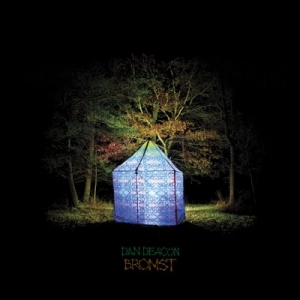 Dan Deacon: Bromst
Dan Deacon: Bromst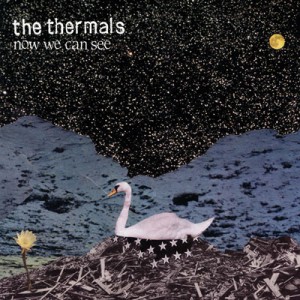 The Thermals: Now We Can See
The Thermals: Now We Can See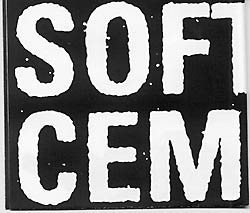 Soft Cement: Think About It EP
Soft Cement: Think About It EP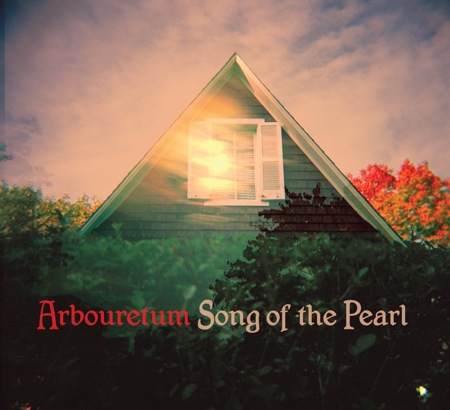 Arbouretum: Song of the Pearl
Arbouretum: Song of the Pearl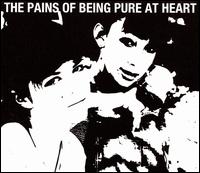 The Pains of Being Pure at Heart: The Pains of Being Pure at Heart
The Pains of Being Pure at Heart: The Pains of Being Pure at Heart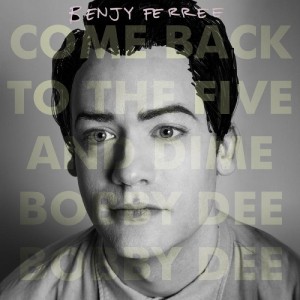 Benjy Ferree: Come Back to the Five and Dime, Bobby Dee Bobby Dee
Benjy Ferree: Come Back to the Five and Dime, Bobby Dee Bobby Dee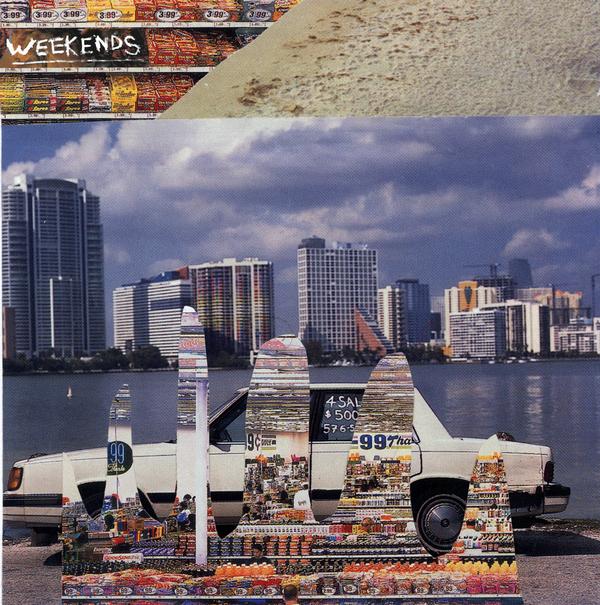 Weekends: Weekends
Weekends: Weekends Height With Friends: Baltimore Highlands 12" LP, Limited-Run Vinyl Only
Height With Friends: Baltimore Highlands 12" LP, Limited-Run Vinyl Only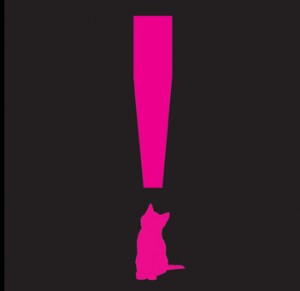 Caverns: Kittens! EP
Caverns: Kittens! EP Little Joy: Little Joy
Little Joy: Little Joy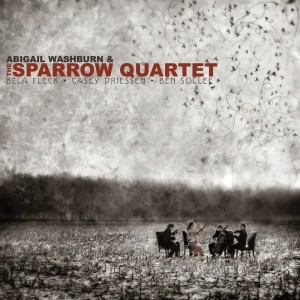 Abigail Washburn & the Sparrow Quartet:Abigail Washburn & the Sparrow Quartet
Abigail Washburn & the Sparrow Quartet:Abigail Washburn & the Sparrow Quartet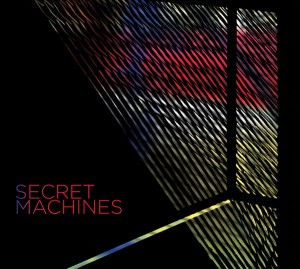 The Secret Machines: Secret Machines
The Secret Machines: Secret Machines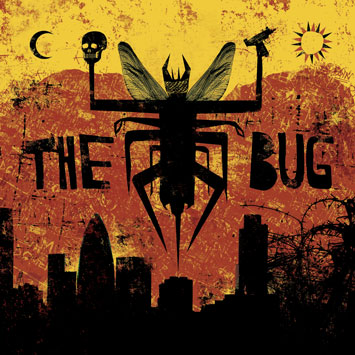 The Bug: LondonZoo
The Bug: LondonZoo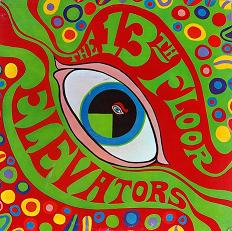 13th Floor Elevators: Psychedelic Sounds of the 13th Floor Elevators (Vinyl Mono LP only)
13th Floor Elevators: Psychedelic Sounds of the 13th Floor Elevators (Vinyl Mono LP only)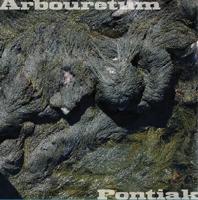 Arbouretum/Pontiak: Kale (Vinyl LP only)
Arbouretum/Pontiak: Kale (Vinyl LP only) Small Sur: We Live in Houses Made of Wood
Small Sur: We Live in Houses Made of Wood AbeVigoda: Skeleton
AbeVigoda: Skeleton ImperialChina: Methods: EP
ImperialChina: Methods: EP
Best interview I’ve read in a long time. Great job! Wish I had the balls to tape this show, but CCAS scares the living shit out this taper.
Awesome article/interview! I think often about how I’m no longer involved and wish I could be, but I just don’t have the time at all.
Also, thanks, Mike, for mentioning the bakery!
Great interview! Thanks so much, Mike (and everyone else) for making CCAS possible and thrive for so many years.
[...] Read that HERE. [...]
[...] Sick Sick Birds — Your Machine [...]